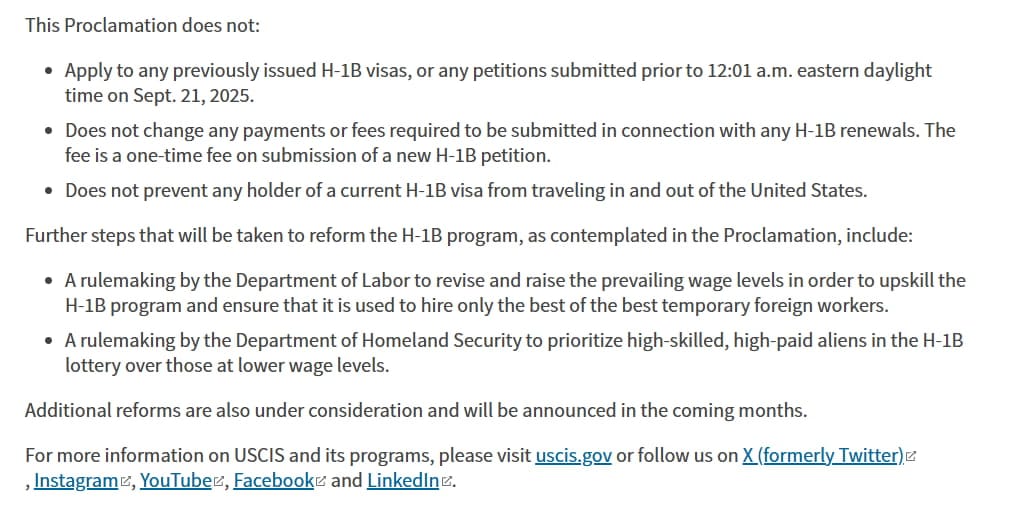After the implementation of a new US regulation that charges a substantial $100,000 cost for each new H-1B visa petition, the US retail giant Walmart Inc. has halted making job offers to applicants who need sponsorship for an H-1B visa, Bloomberg reported on 22 October. Given the dramatic increase in the expense and complexity of employing foreign specialists, the move underscores an increasing hesitancy among major US firms.
Walmart’s corporate positions, which normally require highly qualified workers in technology, data, and finance activities, are reportedly the main targets of the pause. Domestic and store-level operations are not expected to be affected. The business stated that while it is still dedicated to employing top people, it is approaching visa-based employment with “thoughtfulness”.
Confusion Among Companies as Trump Hikes Visa Fees
The ruling follows the Trump administration’s recent directive to charge new H-1B visa applicants a one-time cost of $100,000. Renewals and pending applications submitted before the announcement are exempt from the new rule, which goes into effect in late September 2025. But it has raised a lot of worries in sectors like technology and professional services that depend significantly on talent from around the world.
The financial ramifications for Walmart are significant. It is now far more expensive to sponsor a foreign worker, which makes it less feasible for businesses to hire applicants who require new visas. The company’s action is seen by analysts as a preventative measure to evaluate the administrative and financial effects prior to resuming sponsoring activities. The wider ramifications are not limited to Walmart. It is anticipated that many US businesses, particularly in the technology industry, may evaluate or reduce their H-1B hiring plans.
To get around the increased cost, some employers would move more jobs offshore or use remote working options, while others might favour US nationals or permanent residents. The move creates additional uncertainty for foreign experts, especially those from India, who make up the majority of those with H-1B visas. Offers of jobs that need sponsorship for a visa can now be postponed, cancelled, or reorganised. Additionally, the regulation might hasten the trend of businesses shifting back-office and technological operations to less expensive locations like Eastern Europe or India.
Critics Vs Supporters, Who is Right?
The $100,000 fee’s critics contend that by limiting access to international talent, it might harm US innovation and competitiveness. However, supporters see it as a way to safeguard domestic workers and make sure businesses give local hiring priority. Walmart’s suspension emphasises the immediate disruption brought about by the policy change, even though it is stated to be temporary.
Once the rule’s long-term effects and any legal challenges are more clear, the business and other employers are anticipated to review their international recruiting practices. Foreign job seekers hoping to work in the US in the interim might have to look into other options, including remote work through foreign offices, intra-company transfers (L-1 visas), or exceptional ability visas (O-1). The case highlights a larger change in the US labour and immigration environment, where corporate employment decisions are increasingly influenced by politics, cost, and compliance.
|
Quick Shots |
|
•Walmart •Trump •Pause •Sponsoring foreign workers has |
